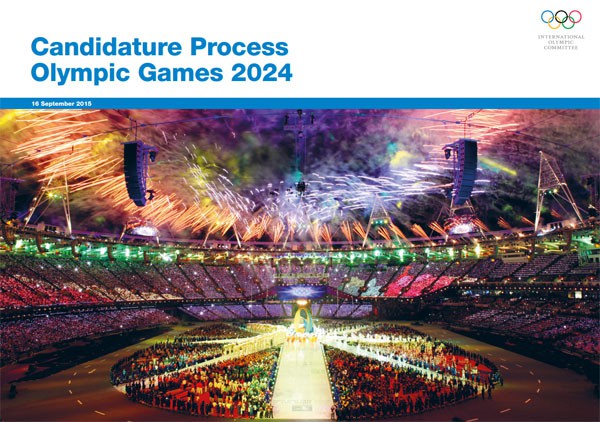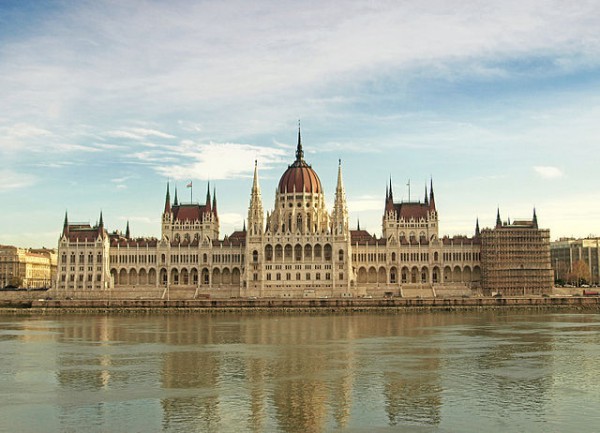Reporting from Kuala Lumpur Convention Centre in Malaysia – Predictably, and historically, the International Olympic Committee (IOC) Friday elected Beijing to host the Olympic Winter Games in 2022 making the city the first in Olympic history to organize both the winter and summer editions and only 14 years apart. Beijing edged out rival Almaty in Kazakhstan by a 44 to 40 vote with a single abstention.
The results were surprisingly close following rumours that suggested the powerful Chinese bid would win by a large majority. But Almaty refused to concede and came out aggressively to a final presentation to the IOC just hours before the final vote.

Technical issues with new voting tablets during the vote, although remedied so the ballot could be completed, likely worried scrutineers when they saw a close result so they ordered a revote on old fashioned paper ballots. The results of that first electronic vote were not released.
IOC President Thomas Bach said that the scrutineer told him that there was a technical problem with the first ballot and that they needed to vote again. Bach said that the second ballot should be on paper.
In the end it became a battle between Agenda 2020, the new IOC reforms approved in December that promotes feasibility and sustainability – and safety. Beijing with experience, strong financial backing and a good relationship with the IOC was the safe choice.
Indeed, Bach said after the vote that a “safe and historical choice” had been made.
“With the great experience of China delivering great sport events I think it really is a safe choice,” he said, “I think China will deliver on its promises.”
By passing on Almaty, a bid that offered pre-built venues, abundant snow and a compact footprint without major transportation enhancements required – it seems that the IOC passed on Agenda 2020 too. While Beijing claimed to be in line with Agenda 2020, its construction of venues with questionable legacies and a multi-billion dollar high speed rail line that is planned, so it doesn’t appear as a Games infrastructure cost – Beijing doesn’t look like an Agenda 2020 candidate at all.

This conveys a confusing message for future bid cities who might believe that feasible and sustainable bids may not be winning bids.
On the announcement Beijing Mayor Anshun Wang said “we are overwhelmed with excitement. The people of China are thrilled and overjoyed.”
When asked why he believed Beijing was successful the Mayor added “the weather conditions, temperature, topography and other natural conditions in Beijing and Zhangjiakou are highly suitable for ice and snow winter sports.”
He also explained that Beijing benefits from experience hosting many mega-events.
After the loss Almaty 2022 co-chair Andrey Kryukov said “we extend our congratulations to Beijing on their successful bid for the 2022 Olympic Winter Games.”
“China has played a significant role in the development of sport in Asia and we know that they will deliver a great Games.”
Alluding to a follow-up bid he added “it does not matter what the result is, if you believe in something you will do it again.”
Kazakh bronze medal figure skater who has been a prominent ambassador of Almaty bid was disappointed at the loss and said “I’m glad about the result that we made it to the final, but of course being a Kazakhstan athlete makes me want to win the Games.”

“I’m sure one day the Olympic Games will come to Kazakhstan too.
“I think it was a good fight, it was very close, it was just nice to be in this fight and it was not a one-way game.”
Mayor Wang said “Almaty is our good friend, a good neighbor, a good partner, they have presented an incredibly good bid.”
Bach said he wasn’t surprised about the results. He said “I expected a close vote because as I always said there are two different concepts there with Almaty and Beijing.”
He said that Almaty was focused more on the sustainability pillar of Agenda 2020 and Beijing focused more on the youth pillar.
“That’s why it was a tough decision for the IOC,” Bach added.
Australian IOC member Kevin Gosper said that Beijing’s victory was well-deserved. He added “I think Almaty did a wonderful job, they’ll be an excellent candidate next time around.”
Sheikh Ahmad Al-Fahad Al-Sabah, IOC member and President of the Association of National Olympic Committees said “I’m happy about the legacy of the first city in the world to host both Summer and Winter Games.”
“I’d like to congratulate the people of China, especially Beijing, for their success.
“Almaty of Kazakhstan was great and I wish future good luck to them.”
Beijing has many challenges ahead as they organize the Games for the next seven years. The high-speed rail link, a critical component of the overall Games plan will need to be completed as promised. Ski facilities in Zhangjiakou and Yanqing will need to be constructed and a plan put in place to prepare sufficient snow for not just the Olympic Games, but also the Paralympic Games that will be staged in March when temperatures begin to rise well above freezing.
The IOC will have to better clarify how Agenda 2020 applies to Olympic bids so future bid cities can play on a level field.
But in seven years it will be compelling to see athletes return to the Bird’s Nest Stadium, the Mastercard Centre for ice hockey, the Water Cube turned Ice Cube for curling and cross-country skiing under the Great Wall of China.


